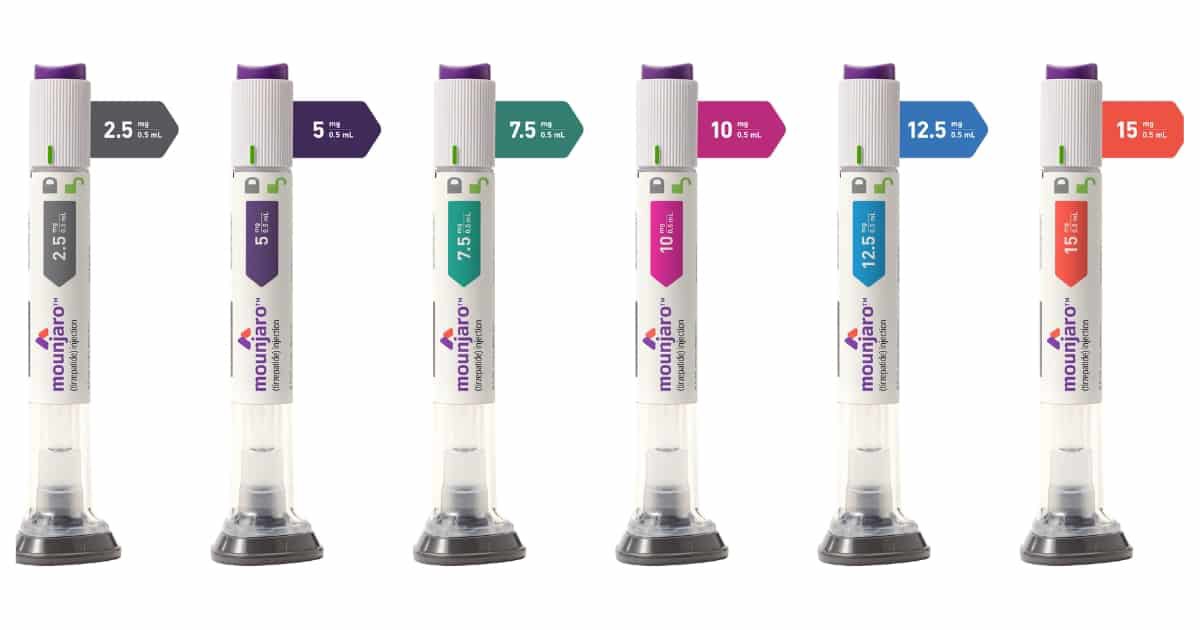In recent years, Mounjaro (tirzepatide) has emerged as a groundbreaking medication for obesity management, showing promise not only in weight loss but also in improving overall health markers for individuals dealing with excess weight. However, for some patients, the expected weight loss may not occur as anticipated, leading to frustration and confusion. If you find yourself in a similar predicament, you are not alone. This article will delve into the various reasons why you might not be losing weight on Mounjaro, helping you understand the complexities of weight management while utilizing this medication.

Understanding Mounjaro
Before we discuss the factors affecting your weight loss journey, it’s essential to understand what Mounjaro is and how it works. Mounjaro is a GLP-1 receptor agonist combined with a GIP receptor agonist. This dual-action approach is designed to enhance insulin secretion, suppress appetite, and promote a feeling of fullness. Mounjaro is typically prescribed for adults with obesity or overweight conditions, especially those with related health issues such as Type 2 diabetes.
The Science of Weight Loss
While Mounjaro shows great potential for aiding weight loss, it is not a standalone solution. Weight loss is a multifactorial process influenced by numerous elements such as diet, physical activity, psychological factors, and metabolic rates. Hence, various reasons may contribute to the lack of weight loss despite being on Mounjaro.
Reasons for Lack of Weight Loss on Mounjaro
1. Individual Variability in Response
Everyone’s body is unique, and therefore, responses to medications can vary widely. Genetic factors, hormonal imbalances, and personal metabolism can influence how effectively an individual may respond to Mounjaro. Some may experience significant weight loss, while others may see minimal or no change. Understanding your unique physiology may help to set realistic expectations.
2. Inadequate Dietary Approaches
Even when on a medication like Mounjaro, maintaining a well-balanced diet is crucial. Many individuals may incorrectly assume that the medication alone will produce significant weight loss without considering dietary changes. Overindulging in high-calorie, unhealthy foods or poor portion control can hinder weight loss, leading to minimal decreases in body weight or even weight gain.
- Caloric Surplus: If you consume more calories than your body burns, you will not lose weight. Weight loss fundamentally relies on creating a caloric deficit. Tracking your caloric intake may provide insight into your dietary habits.
- Nutritional Quality: The type of foods you consume matters. Diets high in processed foods, sugars, and unhealthy fats can negate the benefits of Mounjaro. Focus on nutrient-dense foods like fruits, vegetables, whole grains, lean proteins, and healthy fats.
3. Lack of Physical Activity
Physical activity plays an essential role in weight loss and overall health. While Mounjaro can help control appetite, it doesn’t replace the importance of incorporating regular exercise into your routine. Insufficient physical activity can lead to reduced energy expenditure, making it challenging to achieve weight loss goals.
4. Psychological Factors
Weight loss is as much a mental challenge as it is a physical one. Behavioral and psychological factors can play a significant role. Stress, depression, anxiety, and emotional eating can all sabotage weight loss efforts, even while on medication. If you struggle with these issues, consider seeking support from a mental health professional or a registered dietitian.
5. Medication Dosage and Timing
In some cases, the effectiveness of Mounjaro may depend on the dosage and timing of administration. Patients may need to consult their healthcare provider to determine if their current dose is optimal for weight loss. Adjustments may be necessary based on individual response and health conditions.
6. Medical Conditions and Medications
Certain medical conditions can impede weight loss. Conditions such as hypothyroidism, polycystic ovary syndrome (PCOS), and insulin resistance can all contribute to weight management difficulties. Similarly, other medications you may be taking could counteract the effects of Mounjaro, making weight loss more challenging.
7. Plateaus in Weight Loss
It is common for individuals to experience weight loss plateaus during their journey. These plateaus can occur due to adaptive thermogenesis—the body’s adjustment to lower caloric intake through hormonal and metabolic changes. When weight loss slows or stalls, it can be disheartening, but it is often a normal part of the process. reevaluating your regimen and making necessary adjustments can often reignite your weight loss efforts.
8. Time Frame for Weight Loss
Weight loss is not typically a linear process and can vary from week to week. Some individuals may expect immediate results, leading to disappointment when the scale does not reflect their efforts right away. It’s essential to focus on long-term goals rather than immediate results. Patience is key in any weight loss journey, especially when incorporating a new medication.
9. Lifestyle Changes and Support Systems
Lastly, the importance of a supportive network and lifestyle changes cannot be overstated. Engaging in community support, whether through obesity support groups or online forums, can provide motivation and accountability. Sharing experiences with others on a similar weight loss journey can inspire you to remain committed and positive.
What Should You Do Next?
If you are experiencing difficulties losing weight on Mounjaro, consider taking the following steps:
1. Consult Your Healthcare Provider
Your first step should be to discuss your concerns with your healthcare provider. They can offer valuable insight into your treatment plan and help assess whether changes to your dosage, medication, or overall approach might benefit you.
2. Track Your Food Intake
Maintaining a food diary or using a calorie-tracking app can allow you to monitor your daily caloric intake. This practice helps identify any areas where you may be overindulging and assists in making informed dietary choices.
3. Increase Physical Activity
If you aren’t already, consider incorporating regular physical activity into your life. Aim for a mix of cardiovascular exercises, strength training, and flexibility work to optimize your health and weight loss.
4. Seek Support
Engaging with a registered dietitian or a licensed therapist can provide additional support as you navigate dietary changes and psychological challenges associated with weight loss. Support groups can also offer encouragement during difficult times.
5. Be Patient and Persistent
Understand that weight loss is a marathon, not a sprint. It requires persistence and patience. If you experience setbacks, focus on adjusting your approach rather than giving up.
Conclusion
While Mounjaro has proven to be an effective tool for many in the battle against obesity, individual experiences may vary. If you find yourself struggling to lose weight, recognize that numerous factors may be at play. By understanding these elements, you can take informed actionable steps to optimize your weight loss journey. Consulting your healthcare provider, adjusting your lifestyle, and cultivating a supportive environment can significantly impact your experience on Mounjaro. Remember, weight loss is a journey, and every step counts towards achieving your goals.


